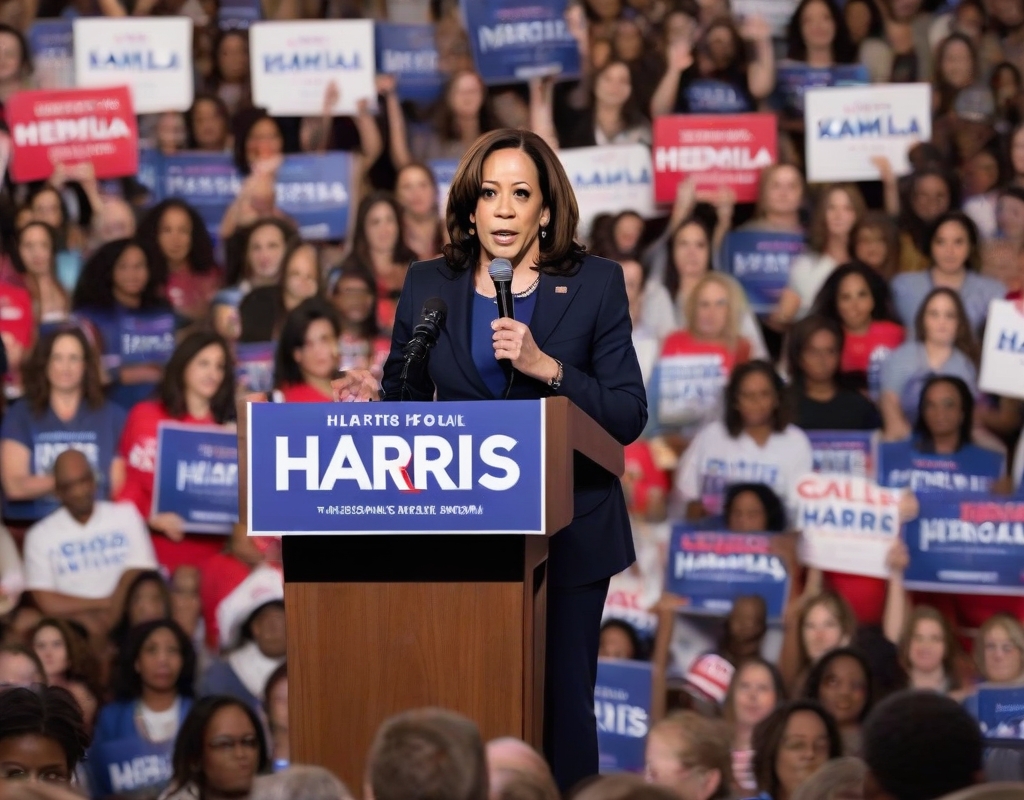Kamala Harris, the well-known Democratic Party figure, is in the midst of a challenging presidential campaign. Initially greeted with enthusiasm, Harris has encountered significant obstacles and controversies that have hindered her campaign progress. In a strategic bid to regain momentum, Harris has recently turned her focus toward medical professionals, emphasizing the critical role of healthcare in her campaign and calling for their support to bolster her bid for the presidency. This article explores the multifaceted issues Harris is facing, including her criticisms of Donald Trump, the fallout from her response to a hurricane, and the general perception of her campaign’s effectiveness.
Throughout her campaign, Harris has faced a series of challenges that have seen her struggle to maintain support in a competitive Democratic contest. Beginning with a strong launch, her campaign’s vitality has waned, prompting a reevaluation of tactics such as public engagements and increased media interaction, aimed at rejuvenating her support base and appealing to new prospective voters. During a recent event targeting healthcare professionals, Harris discussed the pivotal role of medical practitioners in public health policy and urged them to support her candidacy.
A major component of Harris’s strategy has been her staunch opposition to Donald Trump, her Republican counterpart. She has repeatedly criticized Trump’s governance by drawing parallels to authoritarianism and labeling some of his policy decisions as fascist. Despite these fierce rebukes, the impact on her campaign traction has been limited. Although the critiques spotlight genuine concerns about the current administration’s direction, they have not translated into significant voter support gains for Harris, as observed by various political analysts.
Harris’s management of the hurricane crisis in Florida has added to her challenges. Despite affirming her commitment to the affected communities, her response has been criticized as inadequate, with many arguing that her actions did not meet the critical needs on the ground. Local leaders and community advocates have voiced their disappointment, stressing the necessity for more meaningful and timely intervention during such disasters.
Public perception of Harris has not been entirely favorable, reflecting a sentiment that she is not addressing the everyday concerns of American citizens effectively. This notion is compounded by her focus on divisive rhetoric and the perceived superficiality of her campaign efforts, like her response to the hurricane disaster. Such perceptions have fueled skepticism about her readiness to lead, evidenced by polling data showing wavering confidence in her leadership capabilities.
Critics have also scrutinized Harris’s campaign strategy, particularly her focus on direct attacks against her political opponents. While these tactics may garner media attention, they lack substantive policy depth and fail to engage voters who are eager for a detailed vision and actionable plans on key national issues such as healthcare, the economy, and climate change.
In response to the critiques and as part of her strategy adjustment, Harris has been actively reaching out to medical professionals. This move, aimed at focusing on healthcare, one of the most pressing issues for many Americans, suggests Harris is positioning herself as a leader attentive to critical reforms. By engaging medical professionals, Harris hopes to leverage their trusted status to advocate more effectively for her healthcare policies.
Despite these efforts, Harris’s campaign stands at a pivotal juncture. The array of public and strategic challenges continues to test her, and her ability to resonate with the electorate is more crucial than ever. Her latest strategy, targeting medical professionals to reinforce her healthcare initiatives, might be a step toward regaining some traction.
As the campaign unfolds, Harris’s ability to navigate past missteps and articulate a compelling, inclusive vision for America’s future will be critical. Her campaign’s future trajectory and her potential success will depend significantly on her ability to connect genuinely with voters, align her rhetoric with concrete actions, and address the primary concerns of the American populace.
The complexities of running a modern political campaign are clearly reflected in Harris’s journey. It underscores a broader political landscape where authentic engagement and substantive policy discussions are indispensable for securing public trust and support. As Harris seeks to recalibrate her campaign focus, the coming months will be crucial in determining whether her revised strategies will resonate with voters and rejuvenate her presidential aspirations.




